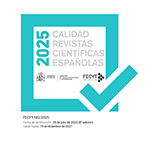Economic Rights, Heritage Sites and Communities: Sustainability and Protection
Abstract
Recent studies have widely discussed cultural heritage and property rights, rights to knowledge for indigenous and local communities, human rights in relation to cultural heritage, as well as impact of tourism on local communities and sustainable development through cultural heritage and past materials. This paper raises the ethical issues of economic income from cultural heritage by addressing the issue of why local and indigenous communities should have the right to design their economic development and directly benefit through and from their local heritage. In this paper, I argue that, as part of their human rights, local and indigenous communities should have the right to decide how to develop and use their local heritage as an ‘economic resource’ and, furthermore, that the profit from heritage tourism (i.e., sites, museums) should return to local and indigenous communities. I will look at three archaeological/heritage sites and their associated local communities in Turkey in order to demonstrate the pitfalls of neglecting the communities’ rights to decide on local heritage and to directly benefit economically from the heritage sites. By using an economic rights-centered approach, I will address the potential benefits of acknowledging these aspects and offer sustainable solutions.
Downloads
Article download
License
In order to support the global exchange of knowledge, the journal Complutum is allowing unrestricted access to its content as from its publication in this electronic edition, and as such it is an open-access journal. The originals published in this journal are the property of the Complutense University of Madrid and any reproduction thereof in full or in part must cite the source. All content is distributed under a Creative Commons Attribution 4.0 use and distribution licence (CC BY 4.0). This circumstance must be expressly stated in these terms where necessary. You can view the summary and the complete legal text of the licence.










